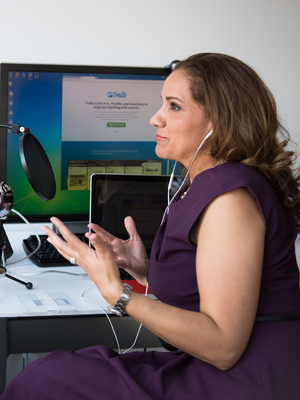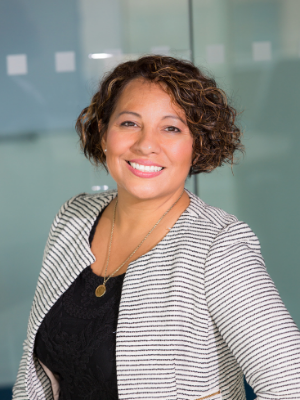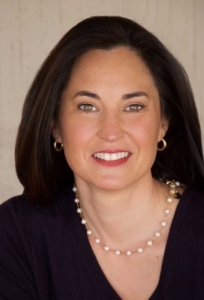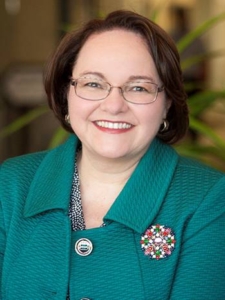 If you take a look through a list of CEOs at Fortune 500 companies, you’ll find that 10% of the most senior leaders are women. After many years at the 8% mark, the start of 2023 brought a slight jump with 5 female CEOs being installed. These CEOs include Karla Lewis of Reliance Steel & Aluminum, Julia Sloat of American Electric Power, Jennifer A. Parmentier of Parker Hannifin, Stephanie Ferris of Fidelity National Information Services, and Maria Black of Automatic Data Processing. Although this is a win, there is still a considerable amount of work to be done to make the leaders of companies more representative of the people who work under them. And one of these areas that needs the most focus is the number of Latina professionals in leadership positions.
If you take a look through a list of CEOs at Fortune 500 companies, you’ll find that 10% of the most senior leaders are women. After many years at the 8% mark, the start of 2023 brought a slight jump with 5 female CEOs being installed. These CEOs include Karla Lewis of Reliance Steel & Aluminum, Julia Sloat of American Electric Power, Jennifer A. Parmentier of Parker Hannifin, Stephanie Ferris of Fidelity National Information Services, and Maria Black of Automatic Data Processing. Although this is a win, there is still a considerable amount of work to be done to make the leaders of companies more representative of the people who work under them. And one of these areas that needs the most focus is the number of Latina professionals in leadership positions.
In the United States, the Latinx population are a major economic driver, contributing over 28% of the US GDP, as well as being the second largest ethnic group. Yet, they are the one of the least represented in the professional world, Latinas especially. Latinas make up 10% of the national population but hold less board seats at Fortune 500 companies (less than 1%) compared to any gender, ethnic or racial group. White women hold 1226 seats followed by Black women with 183 and 89 seats for women from Asian descent. While Latina professionals hold the smallest number of seats, thirty less than women of Asian heritage, as of 2022 women overall still only hold 30% of Fortune 500 board seats.
Currently, in 2023, there have been only three Latina CEOs in these companies. The first of these CEOs was Geisha Williams who acted as CEO of Pacific Gas and Electric Company (PG&E) from 2017 to 2019. She is the first Latina to ever hold the title of CEO at a Fortune 500 company. The second was Cheryl Miller who was CEO of AutoNation from 2019 to 2020. The third, and only current Latina CEO, is Priscilla Almodovar who began her journey as CEO at Fannie Mae at the end of 2022.
Although Latinx accounts for over 18% of the total population in the United States, the number of board seats allocated to Latina professionals is around 1%. Ester Aguilera, CEO of the Latino Corporate Directors Association (LCDA) shares, “In fact over the last 10 years, between 2010 and 2020, Latinos only gained 1%. We went from 2% of corporate board seats to 3%. Latinos and Latinas are invisible in the C-suite and the boardroom. For Latinas, it’s even smaller. Only about 1% of the public company board seats are held by Latinas.” Aguilera attributes this small number to lack of visibility which makes companies feel as though they cannot find qualified Latinas to hire for board positions. The LDCA prides themselves on helping quicken the search to find qualified Latinx professionals and have created a directory with a talent search tool to hone the search for Latinx employees.
What Can You Do To Be an Ally to Latina Professionals?
Understanding that there is a gap for Latina executives is the first step, but deciding what tactics you can bring into the workplace is the most vital step. It can be very difficult for a company to work cohesively if there is not a level of trust and safety felt by its employees. Amy Edmondson introduced the concept of team psychological safety in 1999. Research shows that it still rings true today in making employees more content in the workplace, lowering levels of conflict between coworkers while boosting higher levels of performance. When speaking of psychological safety, Edmondson explains, “Psychological safety exists when people feel their workplace is an environment where they can speak up, offer ideas, and ask questions without fear of being punished or embarrassed.”
In keeping true to the concept of psychological safety, employers must be willing to create an inclusive environment for all backgrounds and cultures. The Harvard Business Review found that 76% of Latinx employees repress parts of themselves at work. This includes their appearance, accents, body language and communication styles which are all part of executive presence, an important element when defining leadership potential. They also found 43% of Latinas feel as though they need to push aside their authenticity to meet the standards of executive presence at their companies. Employers need to create a space where Latinas can be their true selves and below are just a few examples as to how this can be achieved.
Check Your Own Bias
The change will start with you. As a leader, you are the first obstacle to creating an inclusive space. Take some time to sit with yourself and understand what biases you may have. Think about taking an Implicit Association Test to explore your biases. Once you’re aware of your biases, pay attention to them. Take a step back and think about why you made a decision and if your biases had any influence on that choice. See if there are any stereotypes you are holding in your head such as “I don’t like to work with her, she’s too fiery.” Or “I can never understand what she’s saying, her accent is too strong.” Acknowledging your own biases, and apologizing when they get in the way, is a considerably positive step to creating a healthy team culture.
Engage in Active Listening and Use That Information for Change
While attempting to increase any type of inclusion, leaders should strive to listen to what their team is telling them. Take time to connect to your employees, listen actively and be aware of who they are. If leaders want to retain Latinas and hire more, listening to their needs is overtly important. In learning about needs, you need to let the employees lead the conversation and make sure you ask questions and participate so they know you are listening to understand. From what you learned in these conversations, bring change. Create new policies that meet their needs and help them feel more comfortable in their work environment. Knowing the workplace they would be joining is a safe place, where they don’t have to hide their true selves, would be a driving factor to hiring more qualified Latinas.
Increase Opportunities for Latinas
Another way to help increase the number of Latina professionals is to provide more opportunities for advancement. One way would be to implement a mentorship program in your company. You can follow examples such as the one set by JPMorgan Chase. JPMorgan Chase has created an initiative for advancing Hispanic and Latinx in which they provide activities with emphasis on career readiness and support, entrepreneurship, community development and financial help. Having someone to go to for advice will help Latinas feel like they belong as well as give them someone who may have been in their position to help them advance confidently. The JPMorgan Chase initiative also includes fellowship programs for collegiate level Latinx to help them find their way while still in college. Applying an initiative like this, with a focus on Latinas, could create a better laid out path from college to executive positions. You may also try implementing groups for Latina women to connect with each other and share their own stories. Networks and connections play a large role in advancement in today’s professional occupations. Creating a space where Latina employees can feel as though they belong, with people who look and speak the same way they do, can help increase their executive power and feeling of confidence in an executive position.
While all of these ideas can positively affect Latinas professionally, you must keep in mind that change cannot happen overnight so stay focused. By following these suggestions, you can help take that step towards increasing the number of Latina executives in the professional leadership community. This Hispanic Heritage month, remember to be aware of your own biases, listen to understand, and work to increase opportunities for Latina professionals. Supporting this growing community is essential for companies to retain their Latina employees and create a space in which others will want to join.
By Chloe Williams







 “What makes you a good attorney is learning from your mistakes—almost that trial by fire aspect that lets you constantly grow,” says Katten’s Shana Ramirez.
“What makes you a good attorney is learning from your mistakes—almost that trial by fire aspect that lets you constantly grow,” says Katten’s Shana Ramirez. While mentors are important, Neddy Perez also encourages women to seek sponsors.
While mentors are important, Neddy Perez also encourages women to seek sponsors.